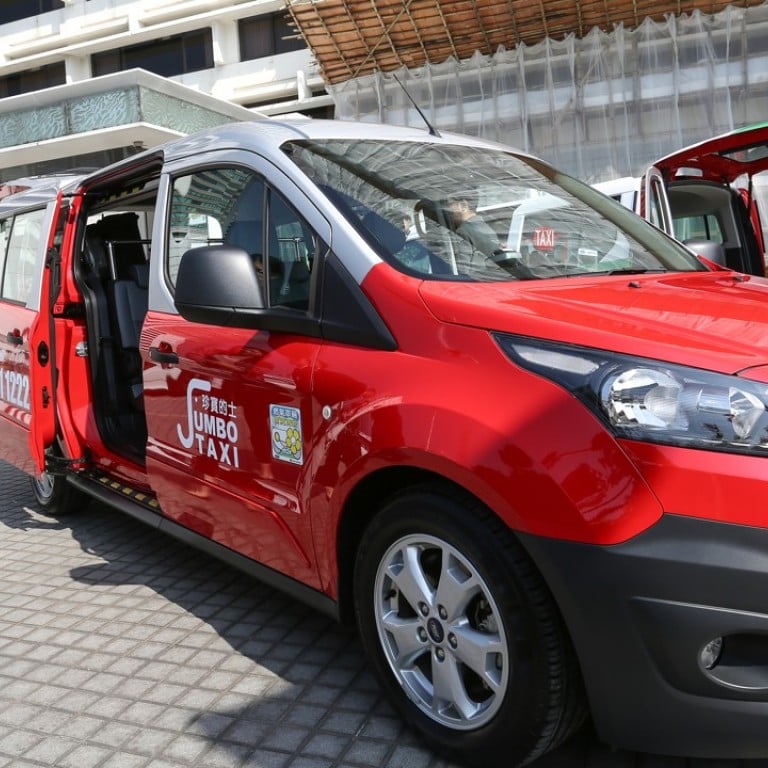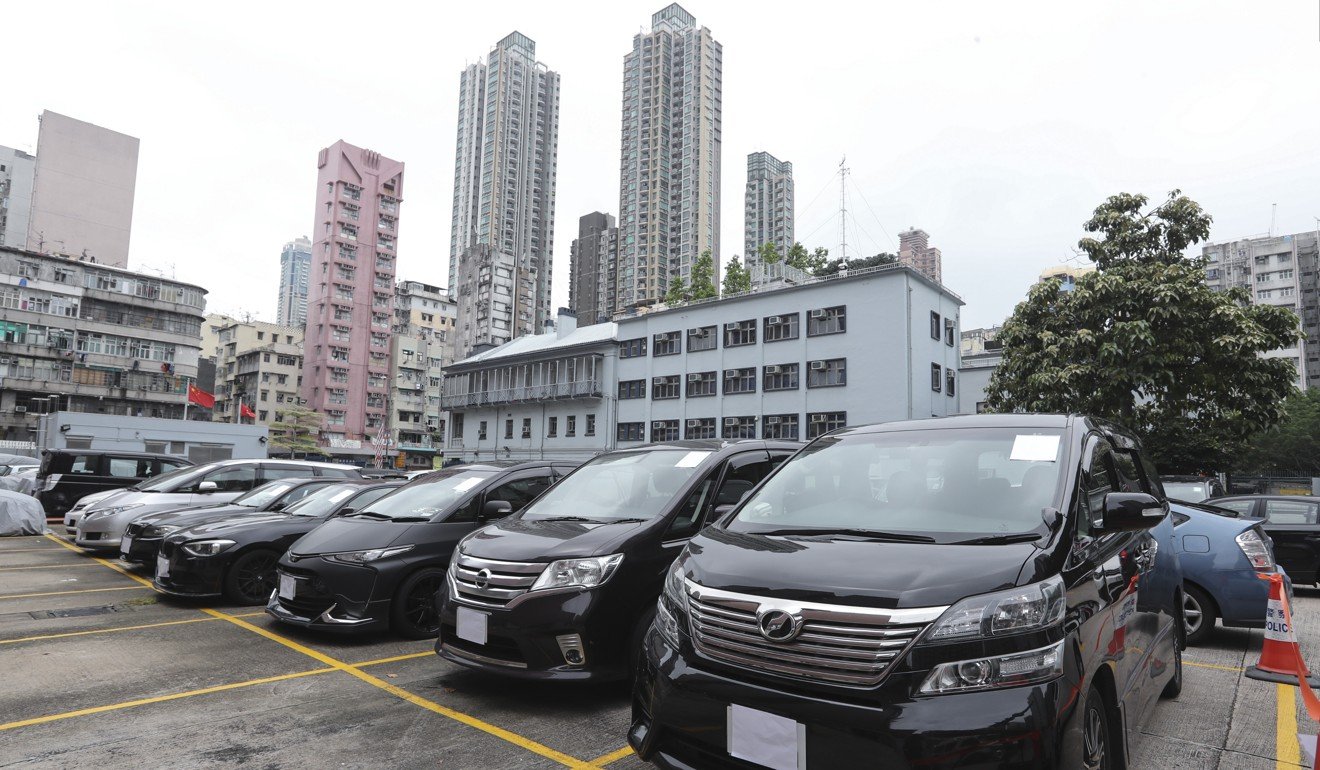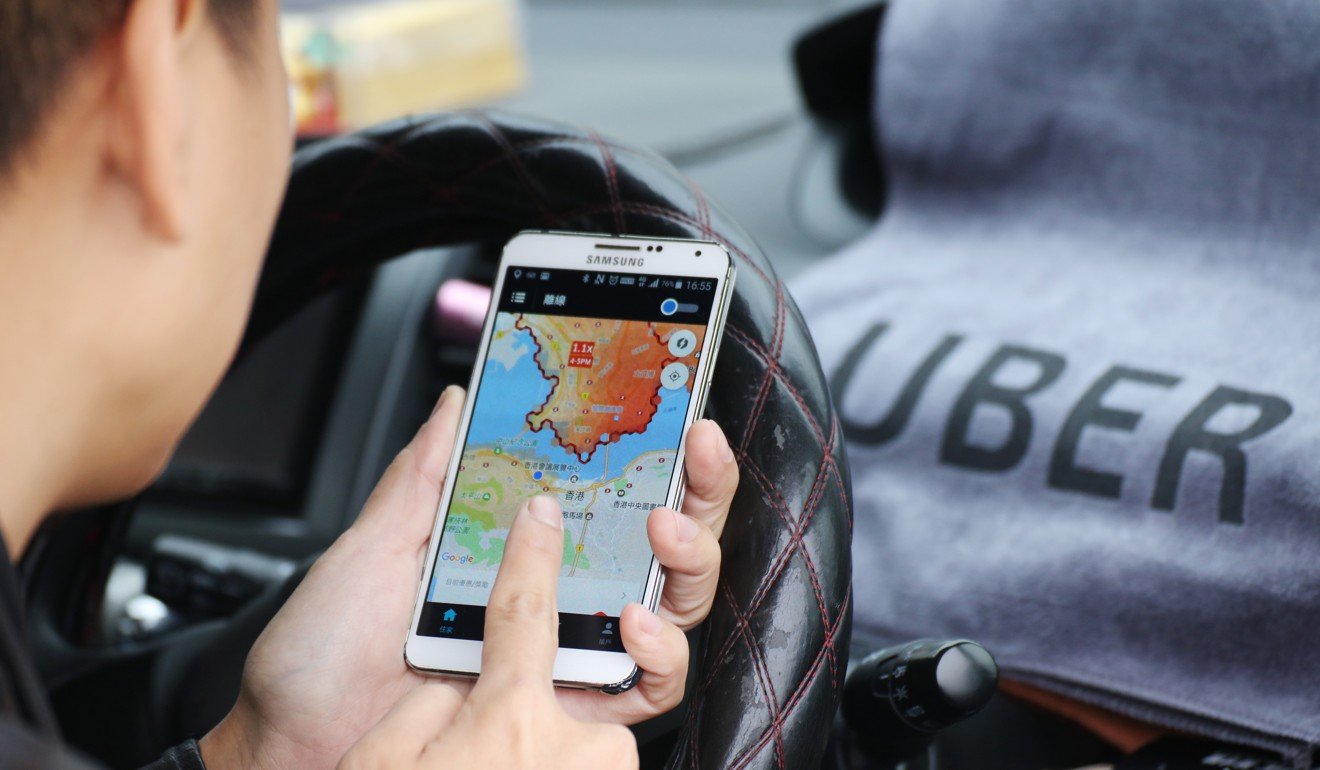
Hong Kong puts brakes on Uber in its road map for the future
Transport chief says car-hailing services must be run like taxi firms, dashing the company’s hopes that it could fit into a new regulatory regime
Uber must change its business model and run like existing taxi companies for a chance to be legalised, Hong Kong’s transport minister said on Wednesday as he effectively blotted out the car-hailing company’s future while unveiling a road map for the city’s public transport.
The blueprint includes 67 proposals altogether, covering buses, light rail, taxis, trams and ferries, some of which were announced earlier but have yet to be implemented.

While the report made no specific mention of Uber, the government’s stance against such car-hailing services was clearly evident when police arrested 22 drivers last month on suspicion of picking up passengers without a hire car permit and third-party insurance.
“The company that you mentioned, which provides car hailing services through the internet, can run its businesses like how existing taxi companies do now,” Cheung said when asked about Uber.
“Some companies are just not willing to be regulated under established mechanism. They hope they can run their businesses and not come under any regulations. I believe that no countries and no governments would allow that.”
That effectively ruled out Uber’s recent appeal for the government to work out a new regulatory regime to accommodate ride-hailing services.
On another significant note, with the current administration’s term ending on June 30, the report suggested the next administration introduce 600 premium taxis, officially labelling them as “franchised taxis”.
Cheung acknowledged the public’s preference for hailing taxis over the internet for convenience. He said premium taxis could provide exactly that service, and the government would welcome any operator to join the new business model.
Uber said it was “pleased” to see that the government had recognised the need to improve point-to-point transport services in Hong Kong.

“However, we would like the government to acknowledge the fact that the franchise taxi scheme is different from the new business model of ride-sharing, which enhances efficiency of vehicles on the roads, and allow driver-partners the choice to earn extra income with flexible working hours,” Uber said.
Still, the embattled firm said, it would look into different business models and work closely with governments to provide safe and reliable rides.
To operate with actual assets and to merely provide a match for drivers and passengers are two very different things
“As China, Singapore, Australia and more than 100 other governments around the world have shown, it’s possible to put in place regulations that regulate this new way of getting around,” the company said.
There are “tens of thousands” of registered Uber driver partners in the city, and more than one million people have downloaded its mobile application, according to the company.
There are about 18,000 taxis in Hong Kong.
Ng Kwan-sing, chairman of the Taxi Dealers and Owners Association, supported the government’s suggestion that Uber transform its business model and take part in the premium taxi business.
“If Uber has acquired the required permits to run its business, then I see no problem. The problem now is that Uber is running a business that engages [drivers] in illegal activities,” he said. “Our business has definitely been affected. The market has been distorted.”
Dr Hung Wing-tat, a transport policy expert at Polytechnic University, said Uber’s existing business model was vastly different from the premium taxi business.
“What I understand about Uber’s operation is that they do not operate their own fleet of vehicles. To operate with actual assets and to merely provide a match for drivers and passengers are two very different things,” he said.
Democratic Party lawmaker Andrew Wan Siu-kin said the government “lacks a perspective of reform”.
“Both the innovation and transport ministers will only say that they keep an open mind about Uber, but urge people not to break the law. This is rubbish because under the current laws, it is illegal for any [unlicensed] driver to pick up passengers for money,” Wan said.
Additional reporting by Brian Wong


